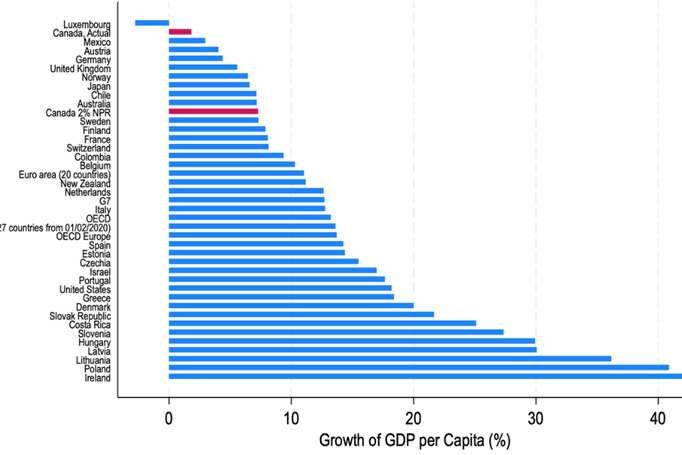TORONTO, Nov. 29, 2023 –Social Capital Partners (SCP) today announced the appointment of Matthew Mendelsohn as its new CEO, effective January 2, 2024. Jon Shell, SCP’s current Managing Director will become SCP’s Chair.
Matthew is a Canadian public policy leader. For over 25 years, he has designed and implemented public policy solutions that work in practice and has advised governments, organizations and elected leaders on ways to improve economic, social and democratic outcomes. Matthew is a former deputy minister with the governments of Canada and Ontario, and was the founding Director of the Mowat Centre, a public policy think tank at the University of Toronto. Most recently he was a Visiting Professor at Toronto Metropolitan University and a Senior Advisor at Boston Consulting Group.
“Matthew is the ideal leader for our new chapter as we pursue our next big ideas,” said Bill Young, Founder of SCP. “As SCP enters its next phase, we will focus on transformational public policy. Our goal is to drive changes that will confront wealth inequality, the thickening barriers to intergenerational mobility, and obstacles to asset ownership for many Canadians.”
In describing SCP’s next phase, Jon Shell, added: “Good public policy can expand opportunities for Canadians to own businesses, homes and assets. Canada can continue to deliver on its promise, but we must do more to combat the financialization of our economy and create more opportunities for Canadians and communities to build wealth.”
“I have long been a big admirer of SCP and its relentless focus on having a positive impact on the lives of Canadians through concrete action, focused investments and coalition building,” said Matthew. “Rising wealth inequality is corrosive to democratic societies and diminishes all of us. The Canadian dream must remain a realistic aspiration for more Canadians, and public policy needs to catch up to the structural realities of our economy. SCP can help drive this work.”
“Good public policy can expand opportunities for Canadians to own businesses, homes and assets. Canada can continue to deliver on its promise, but we must do more to combat the financialization of our economy and create more opportunities for Canadians and communities to build wealth.”
Share with a friend
Related reading
Blame the denominator, not the economy
Over the last couple of years, there have been countless articles warning of Canada’s poor economic performance. The mic drop has increasingly been Canada’s poor performance relative to peer countries on “GDP per capita,” with growth rankings used to draw a variety of sweeping, negative conclusions about Canada’s economy. SCP CEO Matthew Mendelsohn and Policy Director Dan Skilleter draw on economist and SCP Fellow Dr. Gillian Petit's new research to explain why GDP per capita is a deeply flawed measurement for evaluating rich countries - and is easily influenced by a variety of factors having little to do with economic performance or economic well-being.
Non-Permanent Residents and their impact on GDP per capita | Summary
New research by economist and SCP Fellow Gillian Petit estimates what Canada’s GDP per capita would have been over the past decade if Canada had kept our temporary resident numbers stable. She also estimates the expected impact on GDP per capita in the coming years due strictly to planned reductions in Canada's intake of non-permanent residents. Among key findings: Canada’s GDP per capita is misleading and should not be used as if it were the sole indicator of economic well-being. Plus, if we had maintained our temporary resident numbers at two percent of the population in recent years, Canada’s GDP per capita would look much more like our peer countries: a little bit ahead of countries like Germany, the United Kingdom and Australia and a little bit lower than countries like Belgium, Sweden and France.
Non-Permanent Residents and their impact on GDP per capita | Report
New research by economist and SCP Fellow Gillian Petit estimates what Canada’s GDP per capita would have been over the past decade if Canada had kept our temporary resident numbers stable. She also estimates the expected impact on GDP per capita in the coming years due strictly to planned reductions in Canada's intake of non-permanent residents. Among key findings: Canada’s GDP per capita is misleading and should not be used as if it were the sole indicator of economic well-being. Plus, if we had maintained our temporary resident numbers at two percent of the population in recent years, Canada’s GDP per capita would look much more like our peer countries: a little bit ahead of countries like Germany, the United Kingdom and Australia and a little bit lower than countries like Belgium, Sweden and France.

